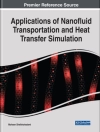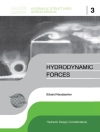* Unifies existing and emerging concepts concerning multi-objective control and stochastic control with engineering-oriented phenomena
* Establishes a unified theoretical framework for control and filtering problems for a class of discrete-time nonlinear stochastic systems with consideration to performance
* Includes case studies of several nonlinear stochastic systems
* Investigates the phenomena of incomplete information, including missing/degraded measurements, actuator failures and sensor saturations
* Considers both time-invariant systems and time-varying systems
* Exploits newly developed techniques to handle the emerging mathematical and computational challenges
Cuprins
Preface vii
Acknowledgements ix
List of Abbreviations xi
1 Introduction 1
1.1 Analysis and Synthesis of Nonlinear Stochastic Systems 2
1.1.1 Nonlinear Systems 3
1.1.2 Stochastic Systems 4
1.2 Multi-Objective Control and Filtering with Variance Constraints 5
1.2.1 Covariance Control Theory 5
1.2.2 Multiple Performance Requirements 7
1.2.3 Design Techniques for Nonlinear Stochastic Systems with Variance Constraints 9
1.2.4 A Special Case of Multi-Objective Design: Mixed H2/H1 Control/Filtering 11
1.3 Outline 12
2 Robust H1 Control with Variance Constraints 17
2.1 Problem Formulation 18
2.2 Stability, H1 Performance and Variance Analysis 20
2.2.1 Stability, H1 Performance Analysis 21
2.2.2 Variance Analysis 23
2.3 Robust Controller Design 27
2.4 Numerical Example 30
2.5 Summary 33
3 Robust Mixed H2=H1 Filtering 41
3.1 System Description and Problem Formulation 42
3.2 Algebraic Characterizations for Robust H2=H1 Filtering 44
3.2.1 Robust H2 Filtering 44
3.2.2 Robust H1 Filtering 50
3.3 Robust H2=H1 Filter Design Techniques 51
3.4 An Illustrative Example 60
3.5 Summary 62
4 Filtering with Missing Measurements 63
4.1 Problem Formulation 64
4.2 Stability and Variance Analysis 67
4.3 Robust Filter Design 71
4.4 Numerical Example 75
4.5 Summary 78
5 Robust Fault-Tolerant Control 87
5.1 Problem Formulation 88
5.2 Stability and Variance Analysis 90
5.3 Robust Controller Design 92
5.4 Numerical Example 98
5.5 Summary 103
6 Robust H2 SMC 105
6.1 The System Model 106
6.2 Robust H2 Sliding Mode Control 107
6.2.1 Switching Surface 107
6.2.2 Performances of the Sliding Motion 108
6.2.3 Computational Algorithm 114
6.3 Sliding Mode Controller 115
6.4 Numerical Example 116
6.5 Summary 118
7 Dissipative Control with Degraded Measurements 125
7.1 Problem Formulation 126
7.2 Stability, Dissipativity and Variance Analysis 129
7.3 Observer-Based Controller Design 134
7.3.1 Solvability of Multi-Objective Control Problem 134
7.3.2 Computational Algorithm 139
7.4 Numerical Example 140
7.5 Summary 142
8 Variance-Constrained H1 Control with Multiplicative Noises 145
8.1 Problem Formulation 146
8.2 Stability, H1 Performance, Variance Analysis 147
8.2.1 Stability 148
8.2.2 H1 performance 150
8.2.3 Variance analysis 152
8.3 Robust State Feedback Controller Design 153
8.4 A Numerical Example 156
8.5 Summary 157
9 Robust Finite-Horizon H1 Control 159
9.1 Problem Formulation 160
9.2 Performance Analysis 162
9.2.1 H1 Performance 162
9.2.2 Variance Analysis 164
9.3 Robust Finite Horizon Controller Design 167
9.4 Numerical Example 171
9.5 Summary 173
10 Finite-Horizon Filtering with Degraded Measurements 177
10.1 Problem Formulation 178
10.2 Performance Analysis 181
10.2.1 H1 Performance Analysis 181
10.2.2 System Covariance Analysis 186
10.3 Robust Filter Design 187
10.4 Numerical Example 190
10.5 Summary 191
11 Mixed H2=H1 Control with Randomly Occurring Nonlinearities: the Finite-Horizon Case 197
11.1 Problem Formulation 199
11.2 H1 Performance 200
11.3 Mixed H2=H1 Controller Design 204
11.3.1 State-Feedback Controller Design 204
11.3.2 Computational Algorithm 207
11.4 Numerical Example 207
11.5 Summary 211
12 Finite-Horizon H2=H1 Control of MJSs with Sensor Failures 213
12.1 Problem Formulation 214
12.2 H1 Performance 216
12.3 Mixed H2=H1 Controller Design 220
12.3.1 Controller Design 220
12.3.2 Computational Algorithm 224
12.4 Numerical Example 224
12.5 Summary 227
13 Finite-Horizon Control with ROSF 229
13.1 Problem Formulation 230
13.2 H1 And Covariance Performances Analysis 234
13.2.1 H1 Performance 234
13.2.2 Covariance Analysis 238
13.3 Robust Finite-Horizon Controller Design 240
13.3.1 Controller Design 240
13.3.2 Computational Algorithm 243
13.4 Numerical Example 243
13.5 Summary 244
14 Finite-Horizon H2=H1 Control with Actuator Failures 247
14.1 Problem Formulation 248
14.2 H1 Performance 251
14.3 Multi-Objective Controller Design 253
14.3.1 Controller Design 253
14.3.2 Computational Algorithm 256
14.4 Numerical Example 257
14.5 Summary 259
15 Conclusions and Future Topics 261
References 263
Despre autor
Lifeng Ma received the Ph.D. degree in Control Science and Engineering in 2010 from Nanjing University of Science and Technology, Nanjing, China. From August 2008 to February 2009, he was a Visiting Scholar in the Department of Information Systems and Computing, Brunel University, London, UK. From January 2010 to March 2010 and from May 2011 to September 2011, he was a Research Associate in the Department of Mechanical Engineering, the University of Hong Kong. He is now a Lecturer with the School of Automation, Nanjing University of Science and Technology, Nanjing, China. Dr. Ma’s current research interests include nonlinear control and stochastic control. He is a very active reviewer for many international journals.
Zidong Wang is currently Professor of Dynamical Systems and Computing in the Department of Information Systems and Computing, Brunel University, UK. From 1990 to 2002, he held teaching and research appointments in universities in China, Germany and the UK. Prof. Wang’s research interests include dynamical systems, signal processing, bioinformatics, control theory and applications. He has published more than 280 papers in refereed international journals. He is a holder of the Alexander von Humboldt Research Fellowship of Germany, the JSPS Research Fellowship of Japan, William Mong Visiting Research Fellowship of Hong Kong. He serves as the Executive Editor for Systems Science and Control Engineering (Taylor and Francis) and an Associate Editor for 11 international journals including five IEEE Transactions. Prof. Wang is a Fellow of the IEEE, a Fellow of the Royal Statistical Society and a member of the program committee for many international conferences.
Yuming Bo received his BSc degree in Automatic Control in 1984, his MSc degree in Automatic Control in 1987 and Ph D degree in Control Theory and Control Engineering in 2005, all from Nanjing University of Science and Technology, Nanjing, China. He is now a Professor of Control Theory and Control Engineering in the School of Automation at Nanjing University of Science and Technology, Nanjing, China. His research interests include stochastic control and estimation, computer communication and programming. He has published more than 20 papers in refereed journals and served as an associate editor for two journals.












